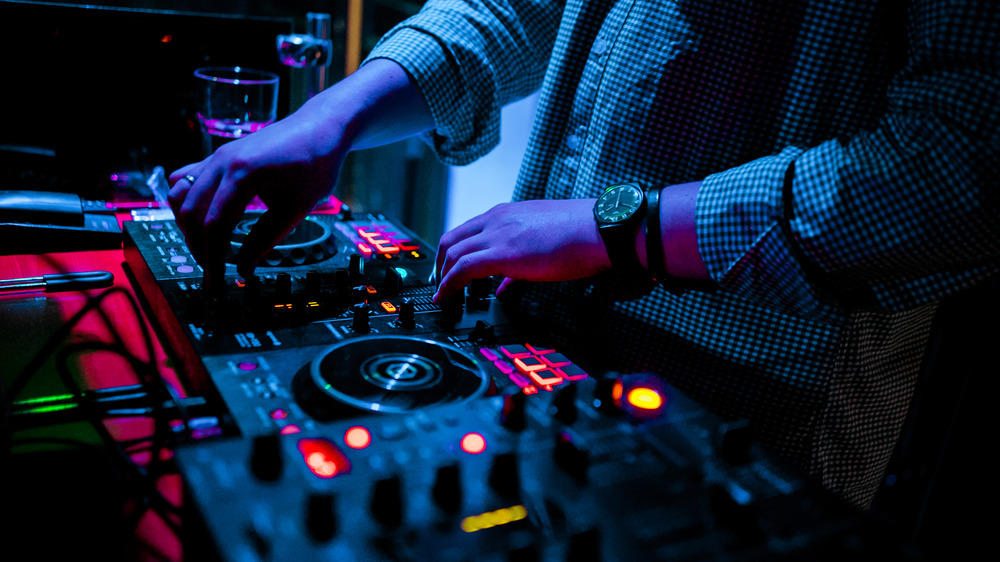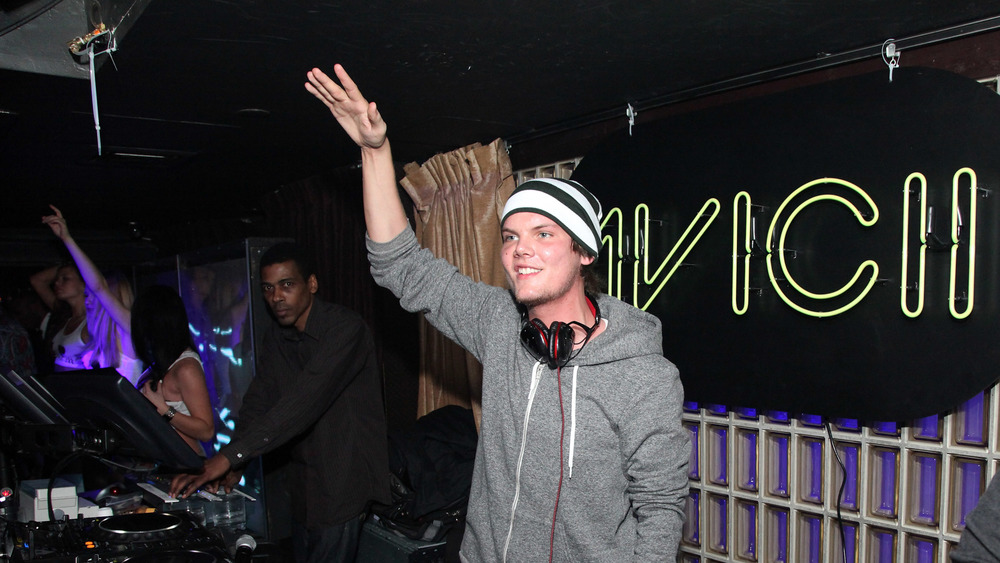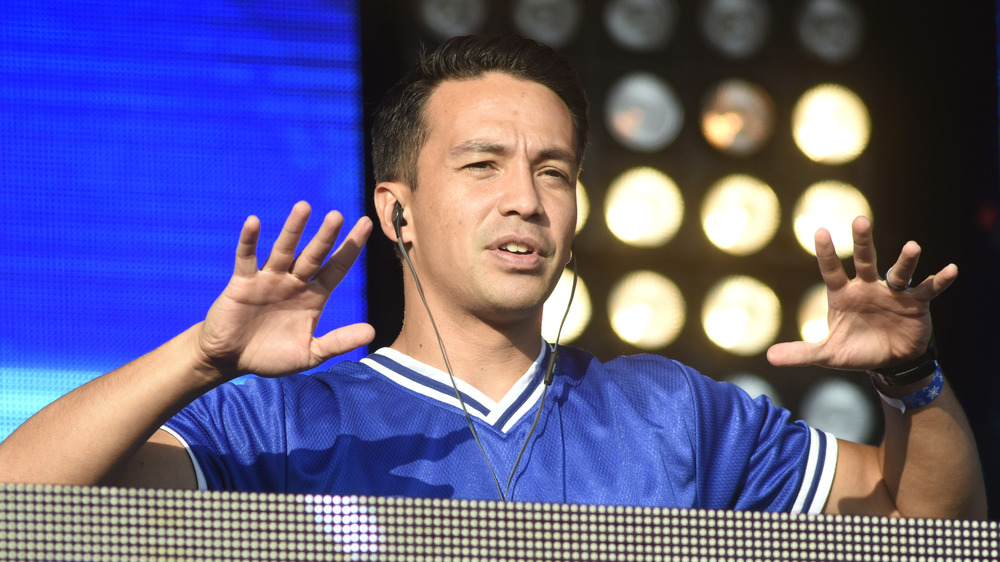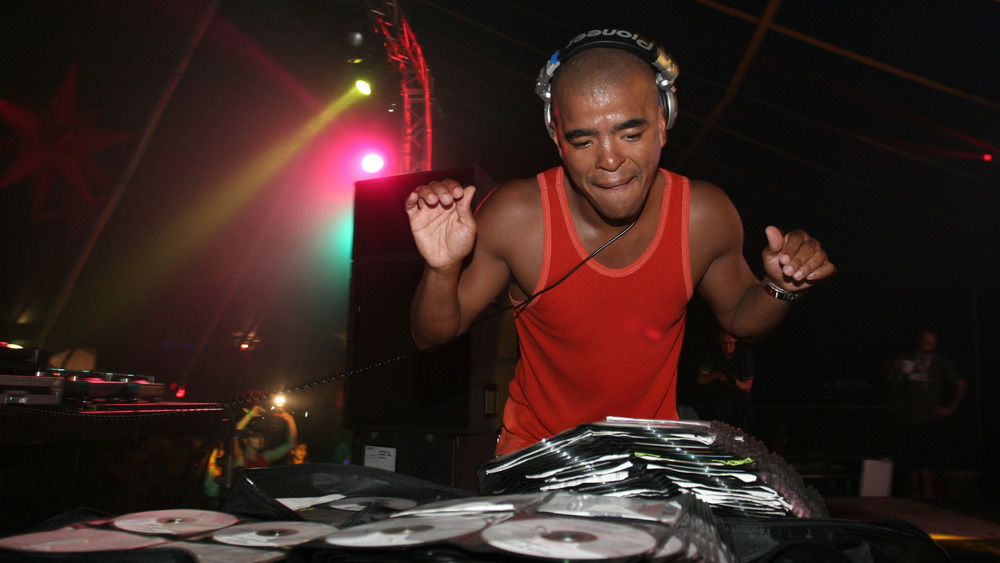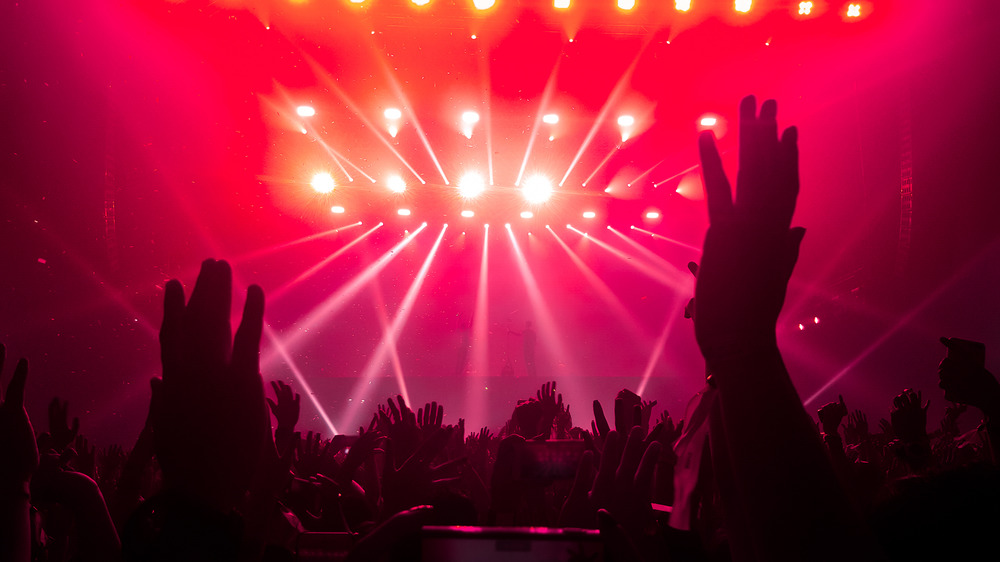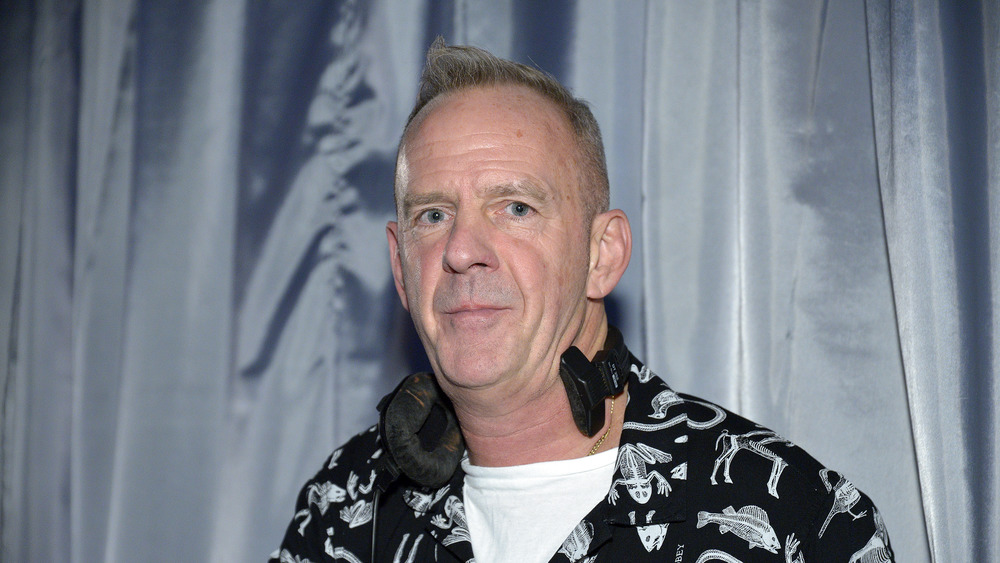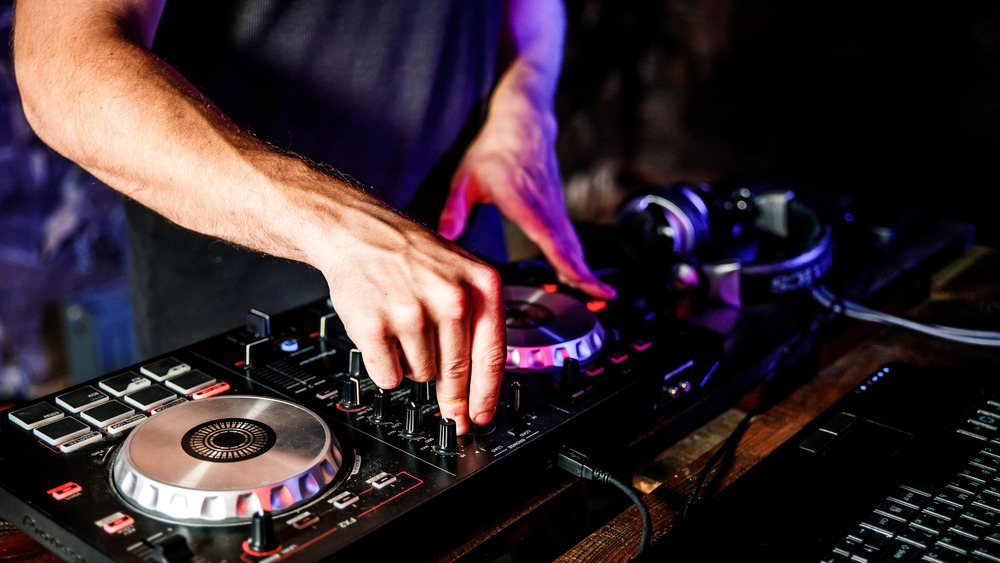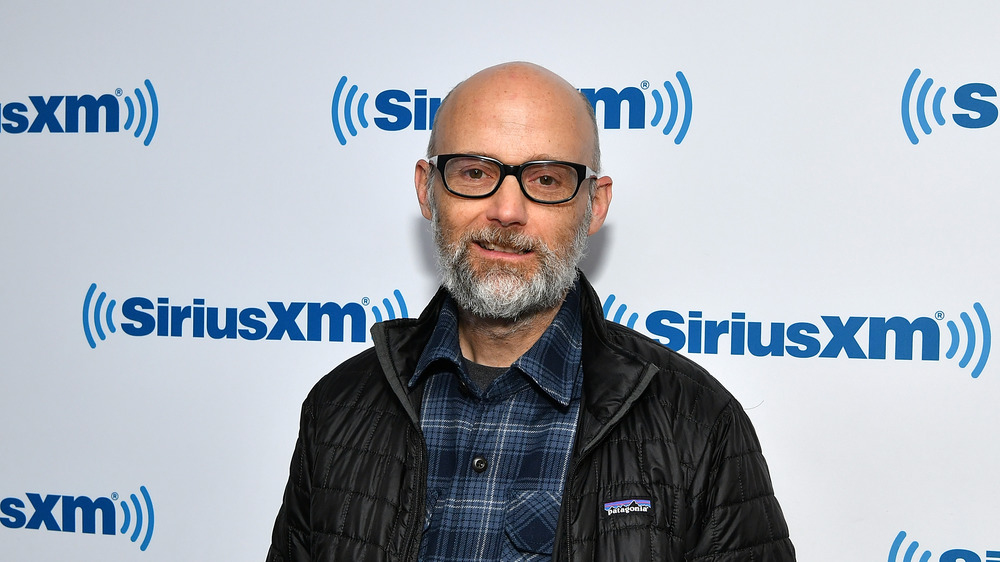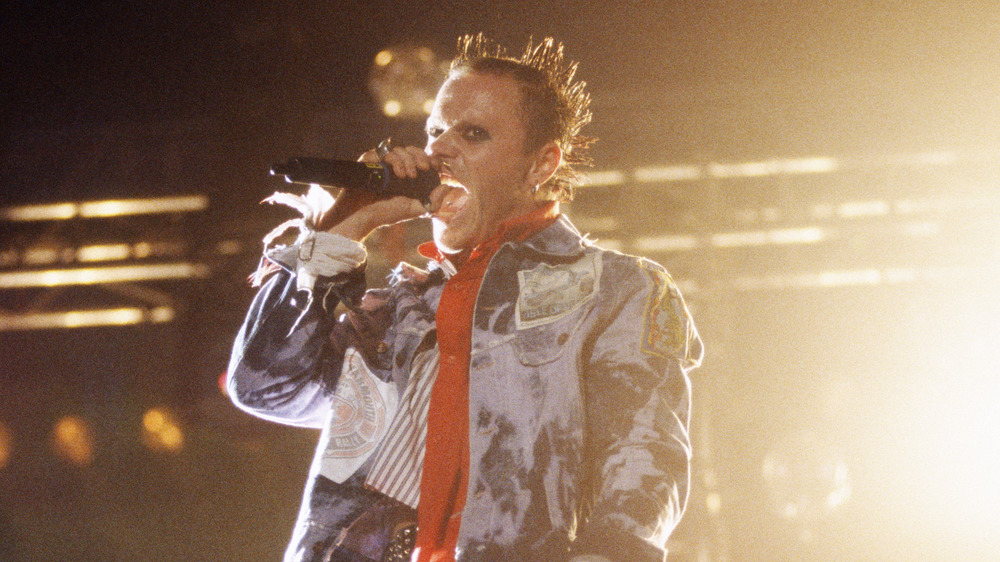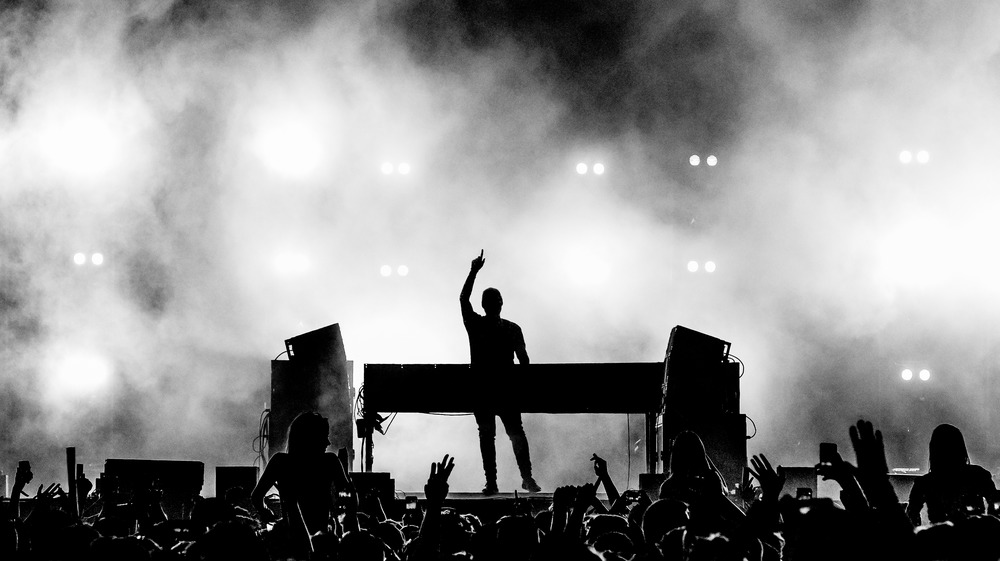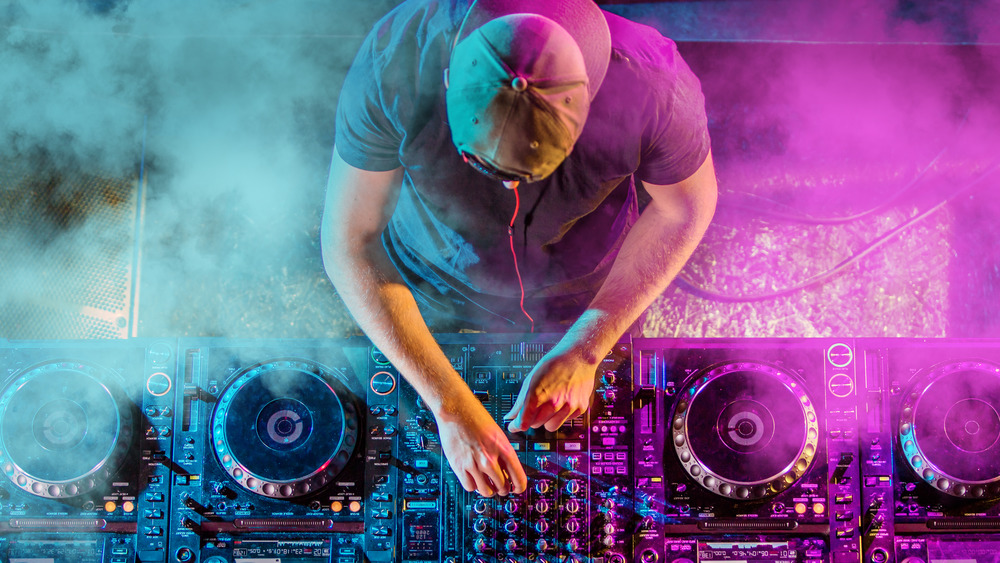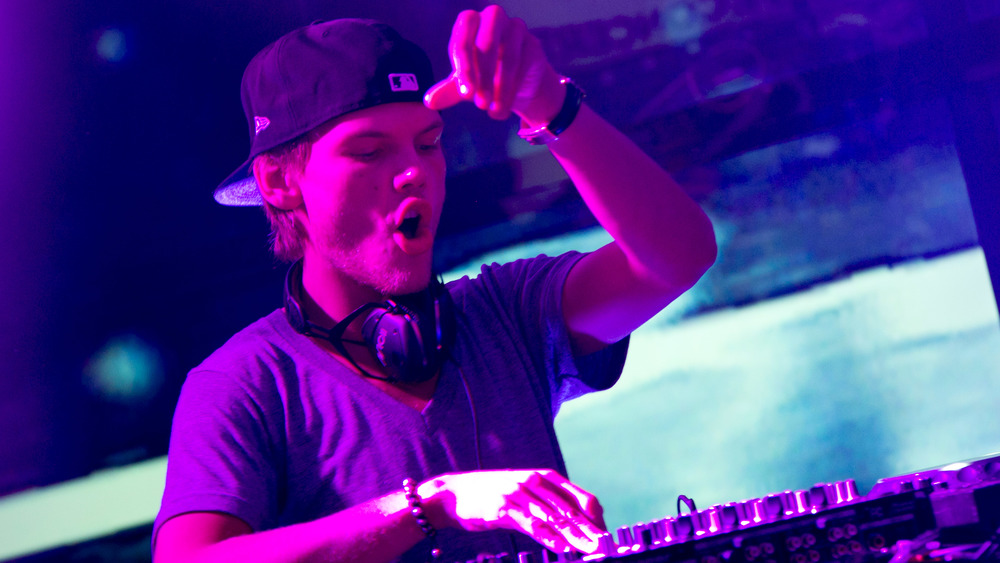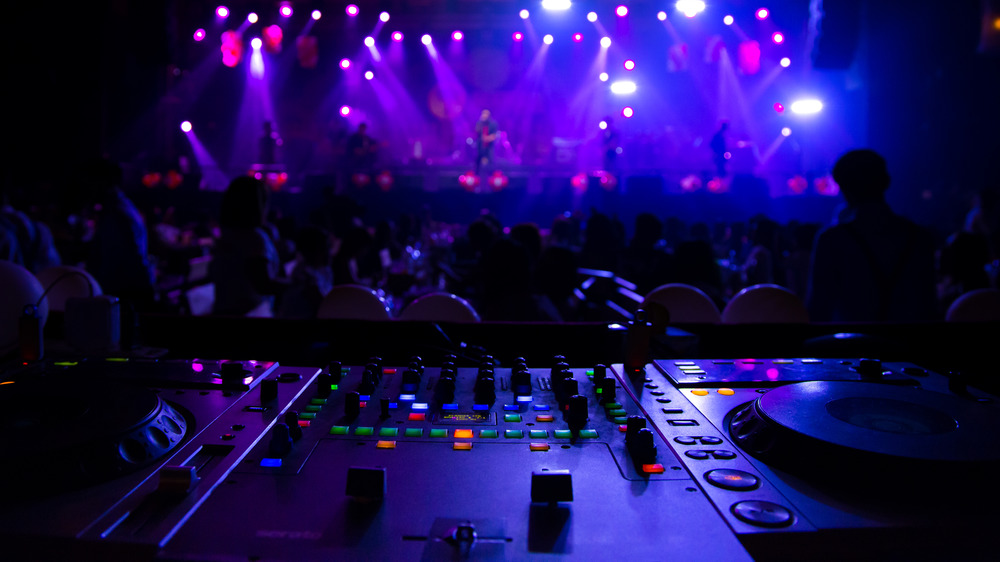Tragic Details About These Famous DJs
For many electronic music DJ's, life on the road is as cyclical as the spinning of a record. Many compare it to a loop, where they're going directly from one show to another, playing hundreds of shows a year. According to the Independent, the late Swedish DJ Avicii played up to 813 shows in eight years, performing almost 320 of them in just one year. And DJ What So Not played up to 400 shows in three years, reports NME.
DJ's are exposed to alcohol and drugs at every venue they play, which leads many of them to indulge in excess while trying to maintain a level of sanity. And many often lose their sanity as mental health conditions such as anxiety and depression will exacerbate or even develop.
United Kingdom charity, Help Musicians, found that 69% of its 2,211 participants experienced depression, while 71% had panic attacks and/or anxiety (via the Independent). Sadly, people who work in music are up to three times more likely to experience depression than the general public. DJs are also faced with missing family and friends, losing massive amounts of needed sleep, and having the pressure to deliver hits and perform. This lifestyle is very difficult for many, who usually start their careers producing from their bedrooms and basements at home. Avicii was one of the DJs who followed this path, experiencing fame, being pushed to sell records and tour, then sadly, passing away at a young age.
The death of DJ Avicii and the shakeup of EDM
In 2016, after years of relentless touring around the world and collaborating with famous artists like Madonna, Lenny Kravitz, and Zac Brown, DJ-producer Avicii wrote an open letter to his fans saying he would be retiring, as per Rolling Stone. Avicii, born Tim Bergling in 1989, was still in his prime and a rising success in the world of house and EDM music when he decided to cut his career short. In his statement, Avicii expressed how he'd focus on taking care of himself while still pursuing his passion for producing, saying, "I know I am blessed to be able to travel all around the world and perform, but I have too little left for the life of a real person behind the artist. I will however never let go of music — I will continue to speak to my fans through it."
For years, the strain of touring wore on Avicii, which made him drink, sent him to the hospital, and resulted in the cancellation of shows, as per Rolling Stone. In 2017, a documentary called Avicii: True Stories exposed the stress and anxiety the house music superstar was battling (via the Independent). After Avicii retired, the Swedish DJ built a studio on a vineyard in Tuscany and worked on new tracks from home. Everyone who spent time with him during his final days said he seemed inspired, happy, healthy, and in charge of his life. However, he was still suffering, and in 2018, while visiting friends in Oman, Avicii committed suicide.
If you or anyone you know is having suicidal thoughts, please call the National Suicide Prevention Lifeline at 1-800-273-TALK (8255).
DJ Laidback Luke tried to create awareness
Avicii's friend and mentor, DJ Laidback Luke, was very close with the Swedish DJ-producer — so close, that over the years, he could see the decline in Avicii's health. According to Rolling Stone, he mentioned Avicii "was almost looking like a walking corpse. He was superthin. He aged in the last five years, man. I was shocked." Something even more noticeable was the subtlety of an expression Avicii gave Laidback Luke when playing a show, saying, "He gave me a very sincere but oh-so-tired smile when he saw me. Soon after, he was onstage playing his amazing music — and that's when it dawned on me. This wonderful and talented kid might not overcome his struggles" (via Business Insider).
After Avicii revealed he was retiring from touring, Laidback Luke wrote an op-ed for Billboard telling fans to pay attention to what DJs are going through, as per Business Insider. "The first few years of heavy touring can have a major impact on a person's life, health, and sanity," he wrote. "DJs on tour average about four hours of sleep per night, and with drinking, afterparties, adulation and everything that comes with it, it's easy to lose oneself."
Like his friend, Avicii, Laidback Luke experienced traumatic effects from touring, as well. The DJ would explain how he'd get chills or tingling inside of his body while in regular environments. He would also experience panic attacks and feel like "1,000 men were coming" to get him when he was at the playground with his daughter. While Laidback Luke was able to overcome his trauma, sadly, like Avicii, there were other DJs who tried but couldn't recover.
The tragic downfall of DJ Erick Morillo
Like Avicii, house music DJ Erick Morillo was another DJ who ended up taking a break, only to let himself sink into depression, using drugs to cope. In the documentary, Why We DJ, Morillo explained after he moved to Miami to take a break, he started dabbling with drugs for the first time. When the industry popped and other DJs were getting famous, he was in Miami feeling like the train left him behind. "The more depressed I got, the more I kept using drugs, and that was the cycle I got into." Eventually, Morillo got professional help and changed his lifestyle.
When Morillo went to therapy, he said the experience humbled him for the first time. While he was able to remain sober for a while and help other DJs see they can recover, sadly, despite all his strength and will, he ended up relapsing. In September 2020, Morillo passed away from "acute ketamine toxicity," according to an investigations report by the Miami Dade County Medical Examiner, as per Billboard. MDMA and cocaine were also found in his system.
According to Legacy, Morillo was known for using the alias, Reel 2 Real. In 1993, he worked with Trinidadian singer the Mad Stuntman to write the popular dance hit, "I Like to Move It." The track became popular again after being used in the animated film "Madagascar." Morillo also started his own record label called Subliminal Records.
Many DJs use drugs and alcohol as a way to cope
In the documentary Why We DJ, EDM artists such as Seth Troxler, Pete Tong, B. Traits, Carl Cox, and Erick Morillo opened up about how alcohol and drugs can take over a DJ's life and lead them down a dangerous path. Troxler explained what it's like, saying, "At the beginning, you start DJing, you're a kid. And you're playing for people, and at some point, it is kind of like, 'Okay, I need to get a little bit loose.' You know? Let's break it in. Have a drink. Like alcohol is more of a problem than anything. ... Then ten years later, it's a bottle per day. And a lot of DJ's, you just get in a loop." The lifestyle becomes a habit for many DJs — many don't have the ability to unplug or even live their lives the way they were used to before their successes.
Many DJs will abuse alcohol and drugs while trying to stay in the groove at a show, to heighten the experience, or to even adjust themselves to the people around them. DJ Luciano said, "I just feel like I'm gonna' punch them in the face because I'm not on that energy. Straight away, I'm like, 'Give me a shot!' Because I have to level myself to just reach that level of conversation." Eventually, these substances become used as an escape.
DJ Fatboy Slim had to go to rehab
In a Rolling Stone interview in 1998, Fatboy Slim, also known as Norman Cook, mentioned how he had insomnia and would use alcohol to help shut off his brain as a way of getting sleep. In a 2009 interview with the Independent, he mentioned why he finally decided to stop drinking, saying, "It wasn't fun any more. I was worrying about it affecting my health and my relationship with my family and my wife. And Zoë had an epiphany one particularly raunchy three-day bender over New Year's. Then she stopped. And after about a month of her being sober and me not, it became apparent that our relationship wasn't going to last with that imbalance!"
Soon, Cook checked himself into rehab for 28 days, which was a shocking experience. "I went to 28 days of boot-camp rehab in Bournemouth," he said. "Not the Priory option — it wasn't fancy-pants at all. I shared a squat with junkies. Well, not a squat, student digs. But [it was] short sharp shock — this is where you are, and this is how you stop drinking." Cook devoted more time to running and exercising at the gym to help him maintain his new lifestyle. While Cook is happy that he's been sober since, he admits that he was able to have a lot of fun.
DJ Ben Pearce suffered from impostor syndrome
In the documentary Why We DJ, DJ Ben Pearce not only had problems with drinking, he also suffered from something many people experience in life, called impostor syndrome. Dr. Alinka Greasley, associate professor of music psychology at University of Leeds, spoke about the condition, saying, "There's something in psychology and therapy environments which is called impostor syndrome, which is where an individual may feel almost like a fraudster." Pearce would sometimes physically shake before shows and would suffer from recurring dreams of messing up while performing to a crowd that's laughing at him.
Pearce would tell himself, "'You're a fraud, you're a fake. You're getting paid to go around the world and you're just basically cheating everybody.' And this kind of perpetuated for a long time." He would even spend time looking himself up online hoping to find negative reviews so he could prove to himself he was rubbish. Pearce decided to seek help by going to see therapists and meditating. He would eventually feel more confident in himself and live a more healthy lifestyle.
DJs can feel isolated and their mental health can suffer
Musician and DJ Moby mentioned how after five years of touring, the experience began to chip away at his sanity and health, as per The Guardian. "I slowly admitted to myself that I hated touring," he recalls. "You can only tell yourself so many times that you're happy and grateful before the brain interrupts and says: 'Oh by the way, we're miserable. We're lonely and isolated and anxious and depressed.'"
Ectro-house producer Steve Aoki said the reason it's harder for DJs on the road is because, "If you are alone [as a DJ], you are the band." He explained how bands usually tour whenever an album is released, but when it comes to DJs, they never stop touring.
In Why We DJ, Seth Troxler explained what the loneliness is like for DJs, saying, "Traveling alone every weekend, week in and week out, alone ... that type of solitude starts to really shape the human mind in an odd way." Troxler also believes that in many cases, DJs get addicted to certain vices like drugs and sex to cure the loneliness.
Keith Flint of Prodigy may have committed suicide
Keith Flint was a member of the electronic group Prodigy, who helped pioneer and bring EDM to the mainstream in the 1990s. Sadly, in March 2019, Flint was found dead at his home. Rolling Stone reported that Flint had alcohol, cocaine, and codeine in his system at the time of his death, which may have been a contributing factor. Later, the coroner determined that Flint's death couldn't be ruled as a suicide or accident due to lack of evidence, as per NME. Following his passing, the other members of Prodigy released a statement, saying, "It has been a tough time for everyone over the last few weeks since Keef's passing. If you are struggling with depression, addiction or the impact of suicide, please do not suffer in silence. The Prodigy fully support the campaign to improve mental health for all."
The EDM star had also suffered from alcohol and drug addiction in his past. In an interview with Matt Blake in 2015, Flint mentioned the group had ran out of material and reached a dark period in the early 2000s, leading him to excessive drinking and taking drugs. It wouldn't be long until Flint wanted to take control of his life again, saying, "I got to the point where I had to stop. I didn't want to be a jabbering wreck."
The stresses of touring can lead many DJs to sleep deprivation
Touring and playing hundreds of shows a year can affect the sleep patterns of DJs and lead many of them to suffer from insomnia and sleep deprivation. "Partying with people back at your hotel for three hours compared to getting some sleep: there's just no competition," Tony McGuinness said. "Jet lag and being unable to sleep when you need it, this is the single biggest danger in our job."
In Why We DJ, Dr. Alinka Greasley, associate professor of music psychology at University of Leeds, said that not sleeping can have a "profound effect on physical health. It alters our ability to regulate our emotions, regulation of appetite and digestion ... it can make us more anxious and also make us depressed."
The National Sleep Foundation says adults typically need seven to nine hours of sleep a night (via the Guardian). Many DJs will only have time for quick naps on planes or on tour buses, which result in broken sleep patterns and usually only a few hours of sleep most days. Many DJs end up insomniacs, spending their time alone in deep thought rather than sleeping. Some claim this to be benefit, such as Fatboy Slim, who said it helped him creatively. In his 1998 interview with Rolling Stone, he said, "lately I've been having trouble sleeping because I'm constantly thinking of new tunes, and if it's half good, I get all excited and can't get to sleep."
Staying in the game
DJs have to worry about staying relevant and reaching their fans at all times. EDM is one of the most competitive genres. With new DJs coming out left and right, many worry they'll be forgotten if they don't keep up. Ironically, it's the lengths many DJs go to trying to stay in the game that put their lives and health at risk, which eventually takes them out. In Why We DJ, Troxler said, "There's so many pitfalls in DJing ... to stay in the game is quite hard. So many times, people are like, 'Whatever happened to that guy?' And the thing that always comes up is life happened to him."
During his interview with Independent, Fatboy Slim mentioned how artists also put such demands on themselves, and how he's reshaped his outlook on staying successful, saying, "They always want more fame and more success and to do bigger gigs," he continues. "Nowadays I'd rather go sideways than up. I don't want to do things on a bigger scale. I want to do things that are interesting."
Since the death of Avicii more DJs started taking breaks
Since Avicii passed, more DJs have decided to start taking breaks from touring, some for only a month, while others go on a break for years. According to Dance Music Now, some of the most notable include Flume, Pretty Lights, Madeon, and Hardwell, who wrote on his Facebook page, "This is why I have decided to clear my schedule indefinitely to be completely liberated from targets, interviews, deadlines, release dates, etc. I've always dealt with all the pressure that comes with the heavy touring schedule, but for now, it felt too much, like a never ending rollercoaster ride. I always try to give myself 200% and in order to keep doing that, and feeding my creativity, I need some time off to be me."
Since Avicii's passing, DJs have been realizing that it's important to take breaks before their health takes a hit. Some performers, like Above & Beyond, regularly take breaks. The group lets one of its members take a break while the other three will perform. Porter Robinson will make sure to take large chunks of time off, even taking two-to-three week breaks in between shows. Thankfully, more EDM artists are being encouraged to stay healthy and take breaks, not only by other DJs, but their fans, as well.
DJs have also made positive changes to their lifestyles
Many DJs have also decided to change their lifestyles so that they can stay healthy while touring. Many exercise, meditate, stop using drugs, and stop drinking. Vice writes that DJ Crookers adapted a lifestyle that's "closer to how an athlete would tour rather than a club DJ." "[I knew] that if I kept up that mad life I would get lost really quick and then it would be harder to fix it," he said. "I've noticed that in general after I started to take care of myself more, then touring became way easier and mentally more sustainable than before."
DJ-producer Brian Cid told Magnetic Magazine, "I used to eat healthily but changed my diet for an even healthier one. I started spending more time in nature looking for a deeper connection. This caused me to have more awareness — a newfound appreciation for life, away from the studio. I also started meditating more than ever, exercising and tackling my frustrations one by one."
More DJs have changing their lives for the better and are able to not only endure but enjoy touring and connecting with their fans. It's a very hard life to adapt to, but thankfully, these DJs are becoming more positive and taking care of themselves. Hopefully, their courage and determination will show other DJs that you can have both a healthy career and lifestyle in an industry that is changing for the better.
